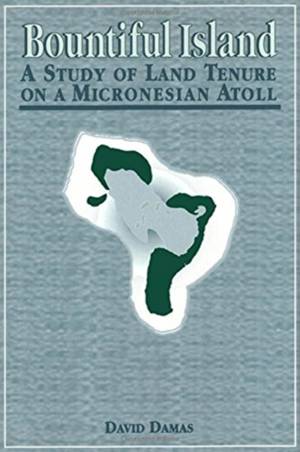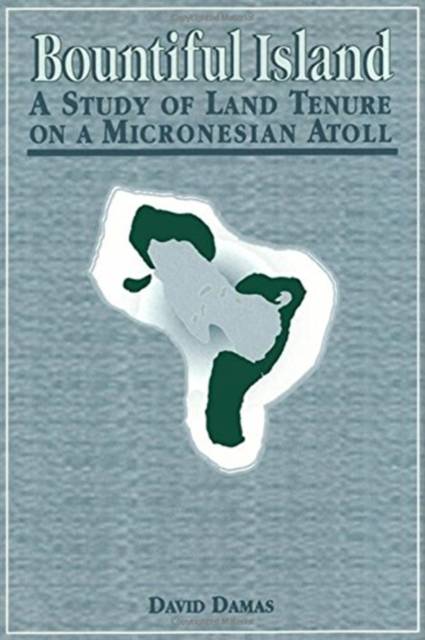
- Afhalen na 1 uur in een winkel met voorraad
- Gratis thuislevering in België vanaf € 30
- Ruim aanbod met 7 miljoen producten
- Afhalen na 1 uur in een winkel met voorraad
- Gratis thuislevering in België vanaf € 30
- Ruim aanbod met 7 miljoen producten
Omschrijving
In Bountiful Island a major Arctic scholar turns his eye on Micronesia: the small and isolated atoll of Pingelap in Micronesia lies in a moist climatic belt which encourages abundant plant life, including such food plants as coconuts, breadfruit and taro. In this detailed examination of land-tenure practices in the atoll, David Damas argues that the resulting high level of subsistence has brought an expansion of the population which has put great pressures on land. Under these pressures, land tenure has moved from communal usage to lineage control, to individual ownership and transmission rights. Comparative material from neighbouring Mwaekil atoll indicates the same general succession from larger to smaller units of tenure with increasing population. While control of land by kin groups is usual in the Pacific, other atoll societies show examples of individual tenure which also relate to changes in population densities.
Subsequent depopulation and emigration have not altered the fundamentals of the land-tenure system but have led to the emergence of a pattern of land stewardship. This has resulted in imbalances between the holdings of resident cultivators and those of absentee landowners.
Comparative material from neighbouring Mwaekil atoll indicates the same general succession from larger to smaller units of tenure with increasing population. While control of land by kin groups is usual in the Pacific, other atoll societies show examples of individual tenure which also relate to changes in population densities.
Bountiful Island will be of interest to all anthropologists studying cross-cultural comparisons in the theory of land-tenure practices and the ethnology, social anthropology and ethnohistory of Micronesia. This book is also suitable for senior undergraduate and graduate courses in cultural ecology and area courses on the Pacific.
Specificaties
Betrokkenen
- Auteur(s):
- Uitgeverij:
Inhoud
- Aantal bladzijden:
- 288
- Taal:
- Engels
Eigenschappen
- Productcode (EAN):
- 9781554584604
- Verschijningsdatum:
- 29/11/1994
- Uitvoering:
- Paperback
- Formaat:
- Trade paperback (VS)
- Afmetingen:
- 152 mm x 229 mm
- Gewicht:
- 503 g

Alleen bij Standaard Boekhandel
Beoordelingen
We publiceren alleen reviews die voldoen aan de voorwaarden voor reviews. Bekijk onze voorwaarden voor reviews.











